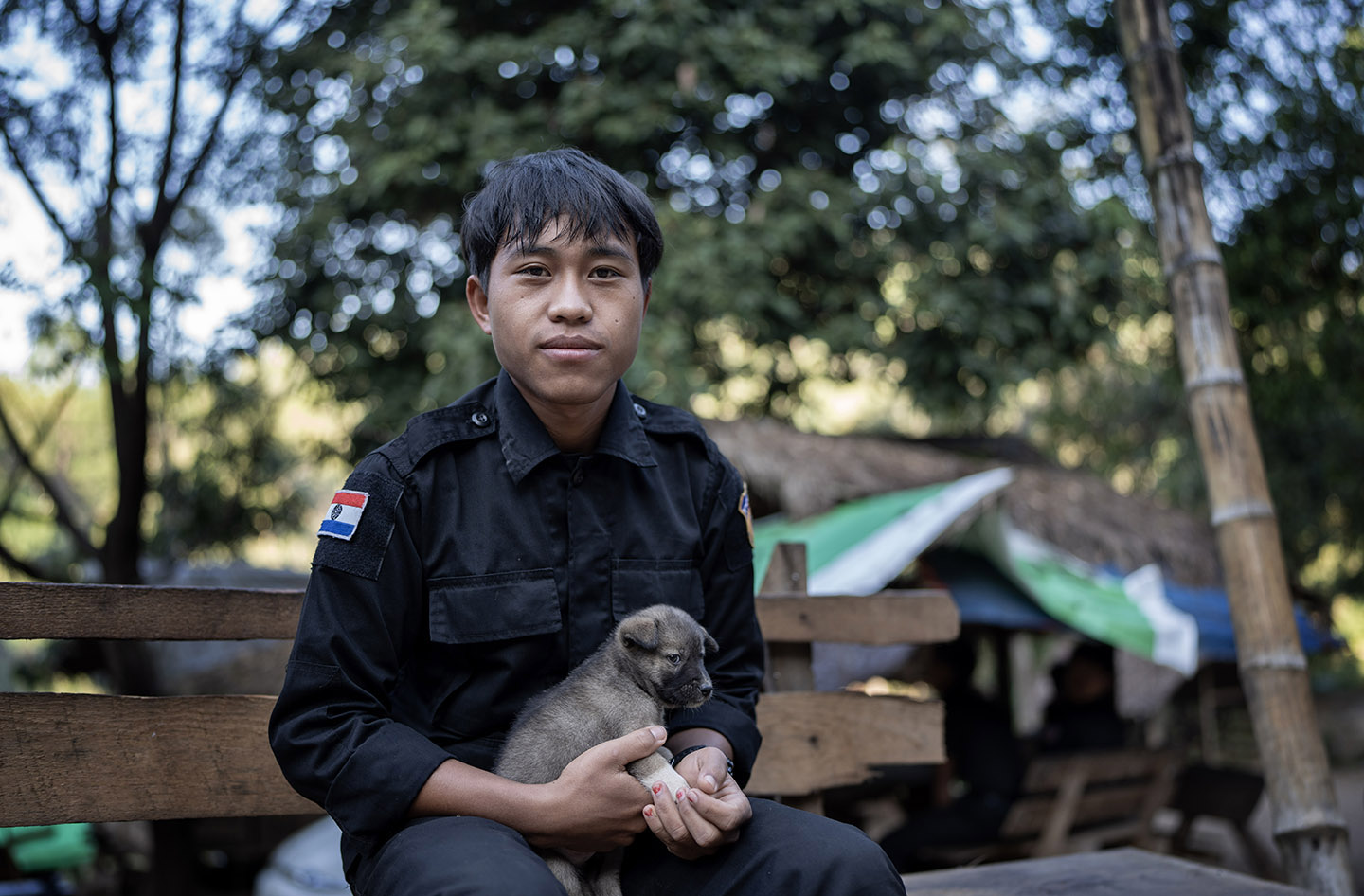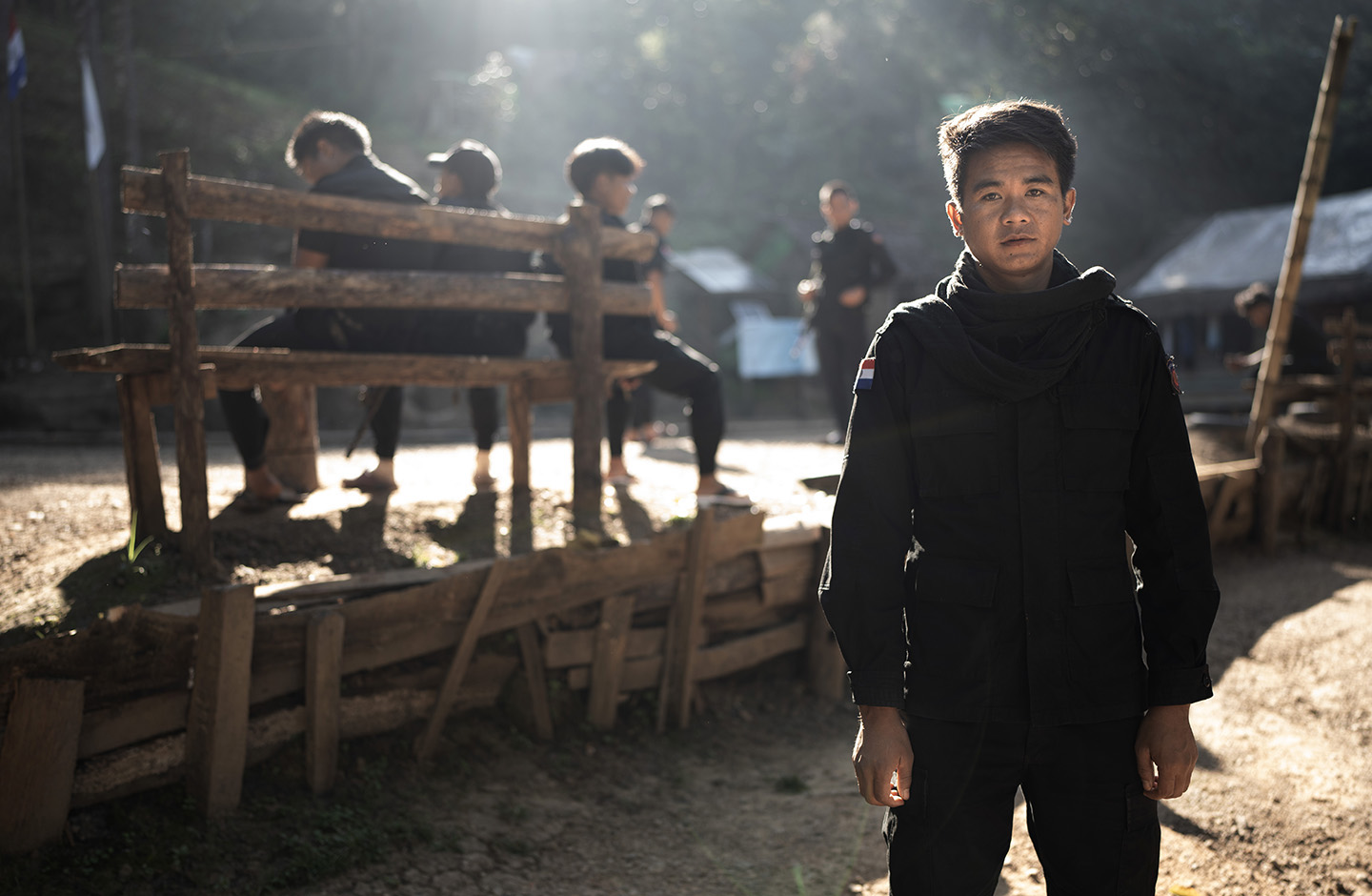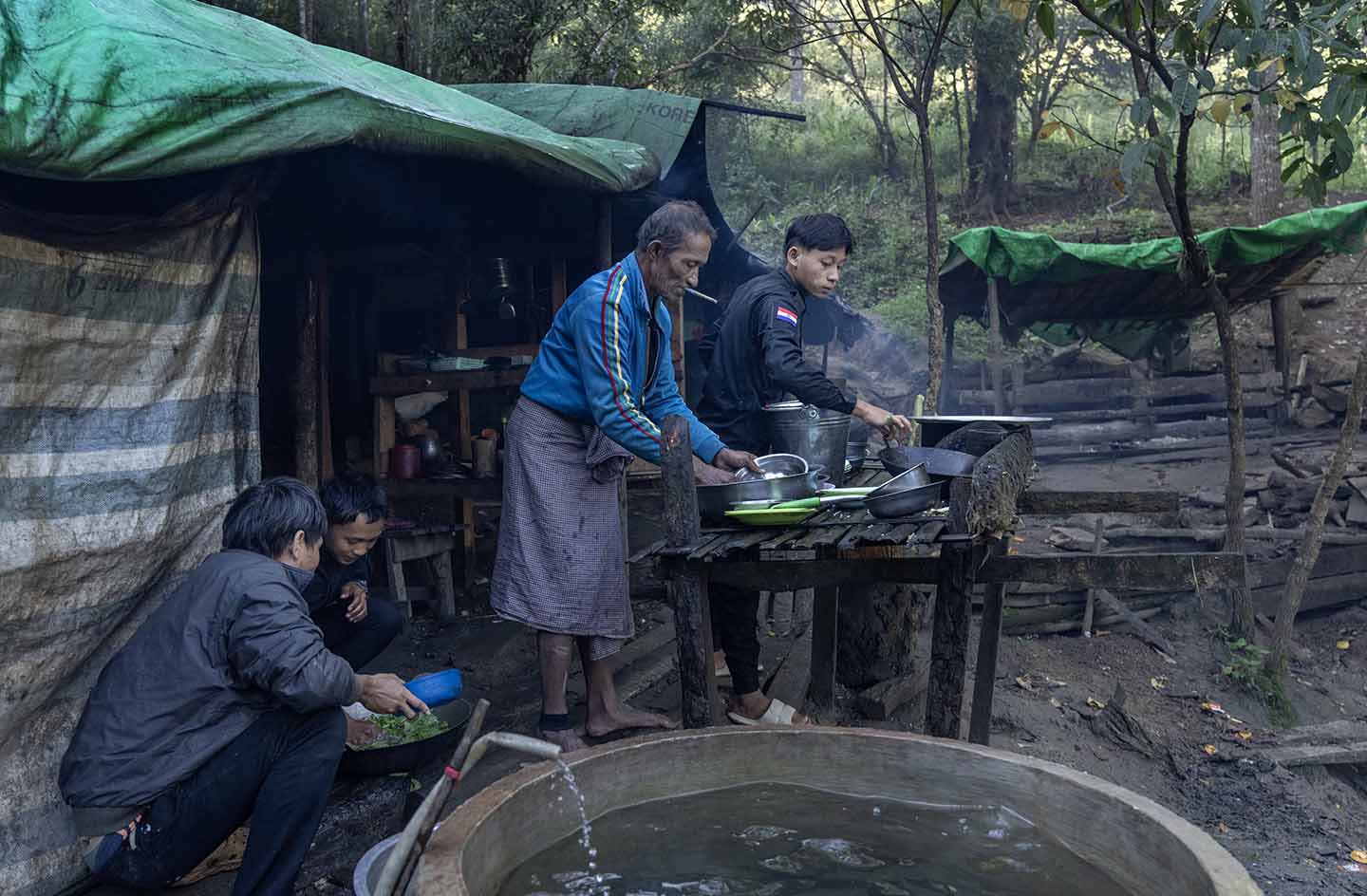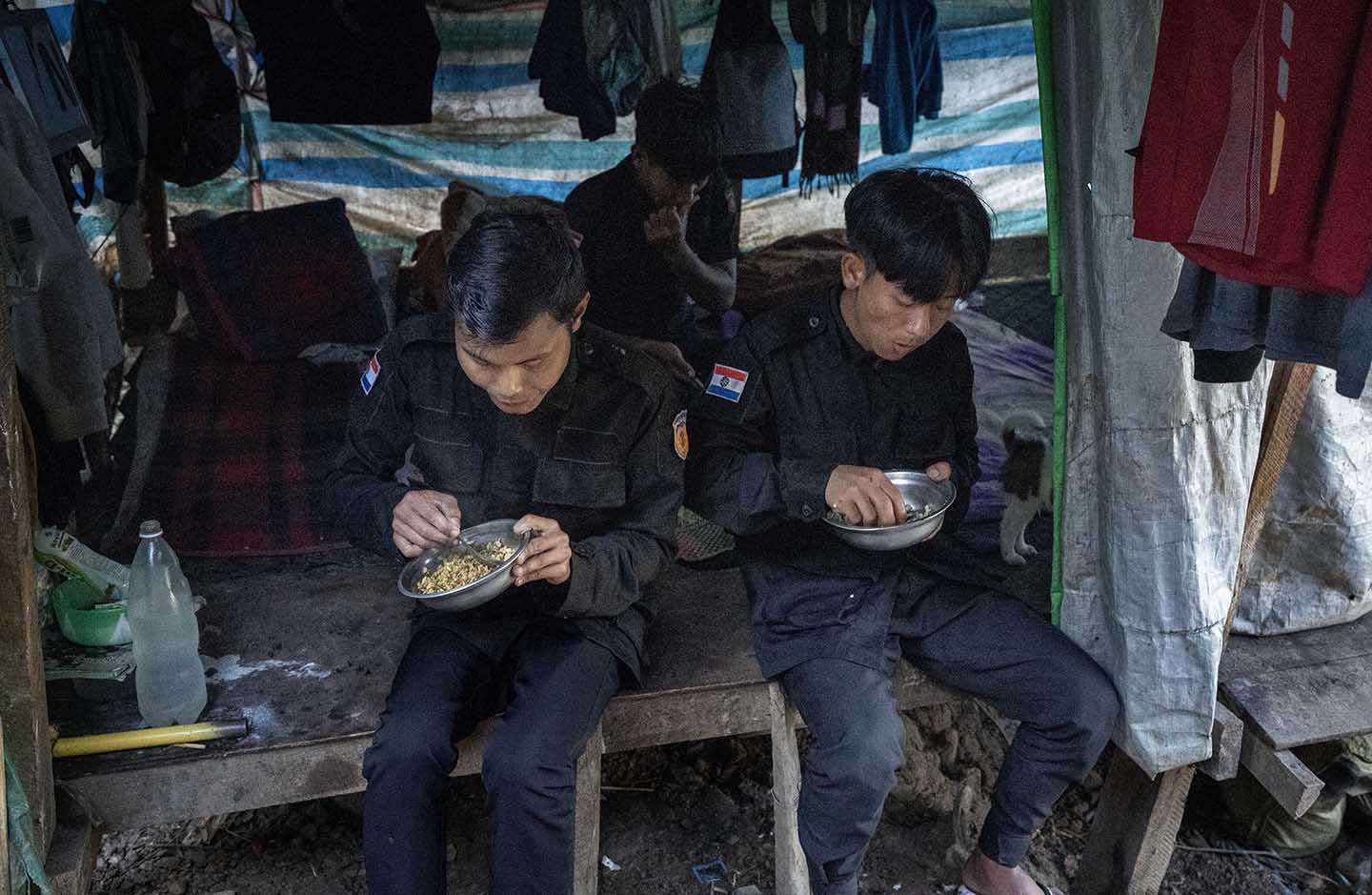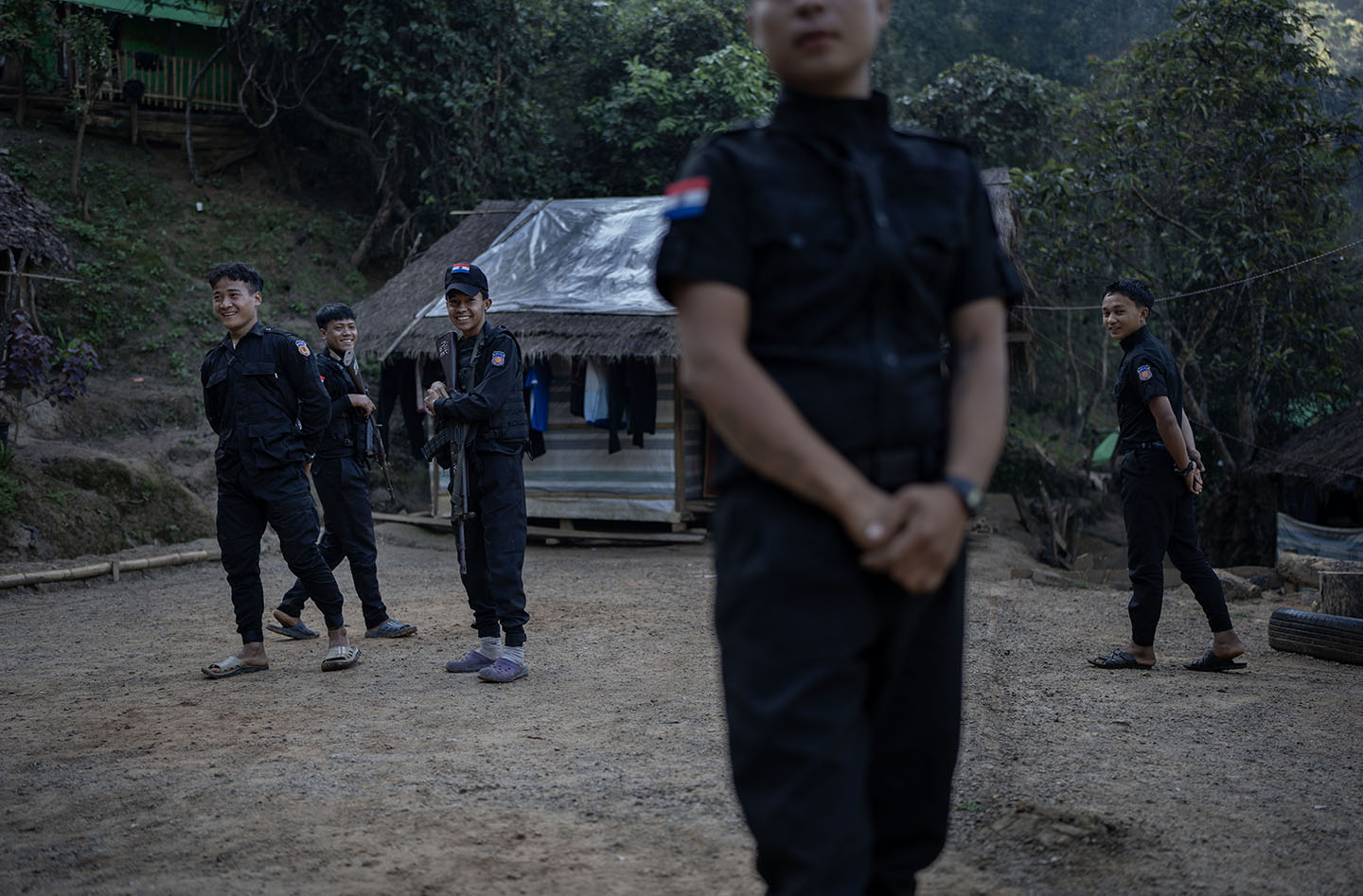Building a police force in the middle of Myanmar’s civil war
A lot is riding on the success of the Karenni State Police. RFA gets an inside look.
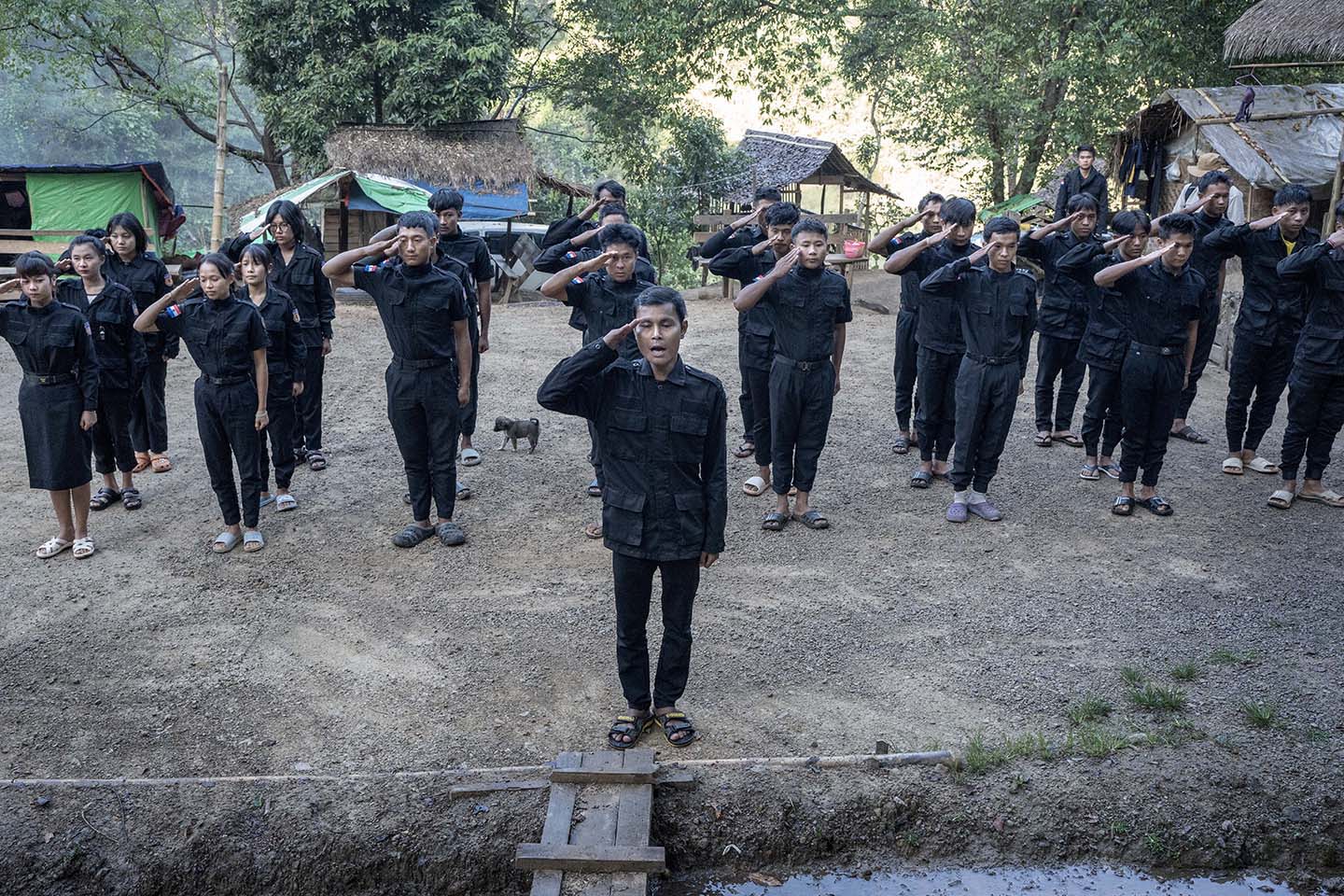
Feb. 26, 2025
Part of a three-story series on the fight for and rebuilding of Myanmar’s Kayah state following the 2021 coup. Read Part 1 and Part 3. Take a deeper dive with Multimedia.
DEMOSO, Myanmar
The officers of Station 8 in Myanmar’s southern Shan state pile out of their police car, a beat up minivan with bad brakes and a busted front light. Their mission: set up a checkpoint to search for yaba, a type of methamphetamine that’s become a scourge in Southeast Asia.
Young and slight, this contingent from the new Karenni State Police, or KSP, looks more like students on an immersive career day than a group of no-nonsense cops. A few practice waving cars to the side of the road – striving to convey a confident authority but struggling to suppress embarrassed grins.
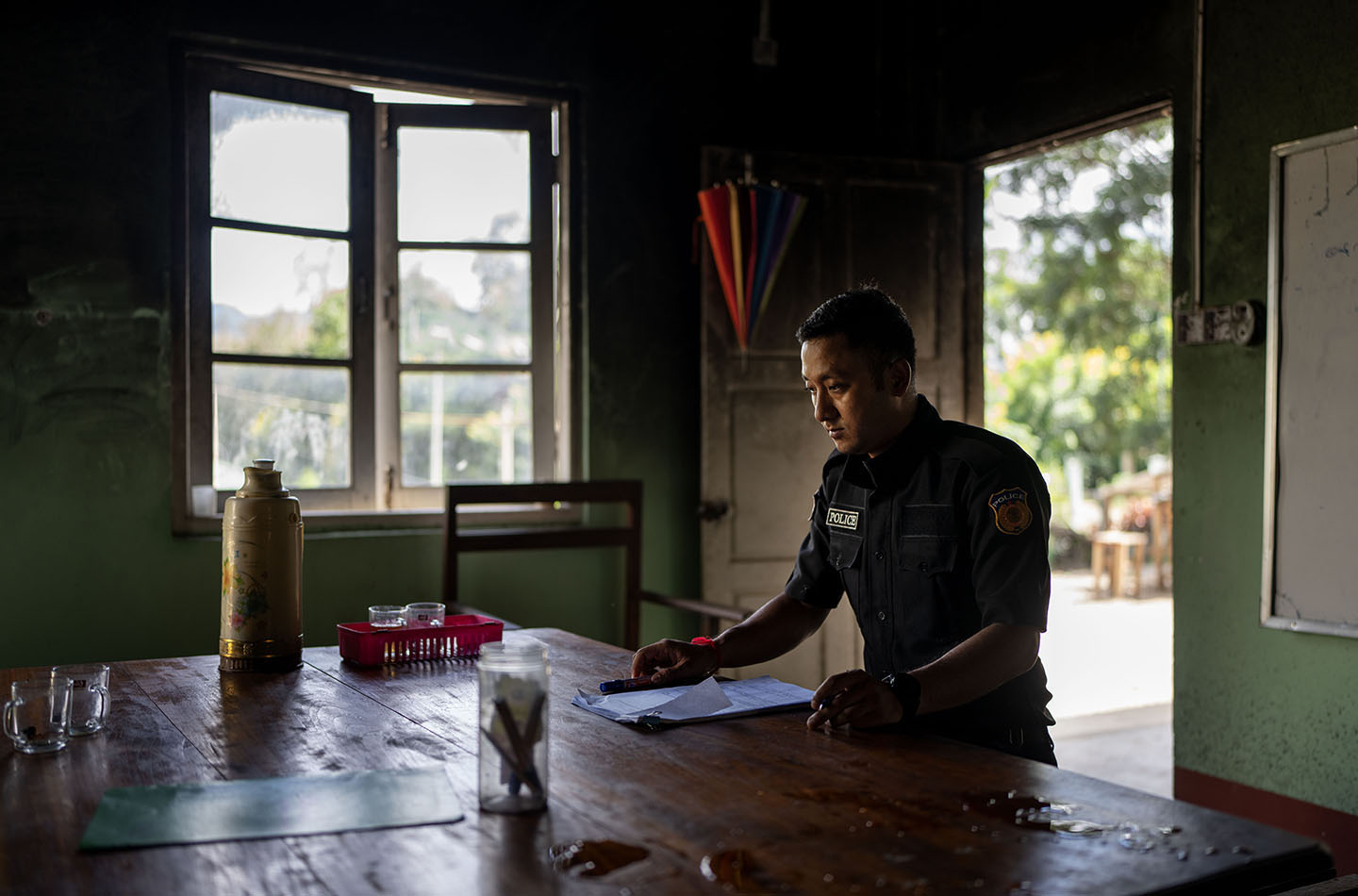
After what locals say was years of abuse by the former police force run by Myanmar’s repressive military regime, a little humility isn’t a bad thing.
“Before, civilians didn’t trust the police, so they didn’t come to see us,” says Bel Kyaw, 29, the commander of Station 8 who, like a chaperone, patiently watches over his officers from the side of the road. “We’re more friendly.”
The KSP was established in August 2021, six months into a civil war triggered by the Myanmar military coup.
The importance of developing a rebel-backed police force in the midst of this ongoing conflict may not be immediately clear. But rebels and outside observers of Myanmar say that for the insurgency to succeed, its backers must not only beat better-armed government troops on the battlefield but assure a traumatized public that they can replace the services that have been lost in the fighting, including security.
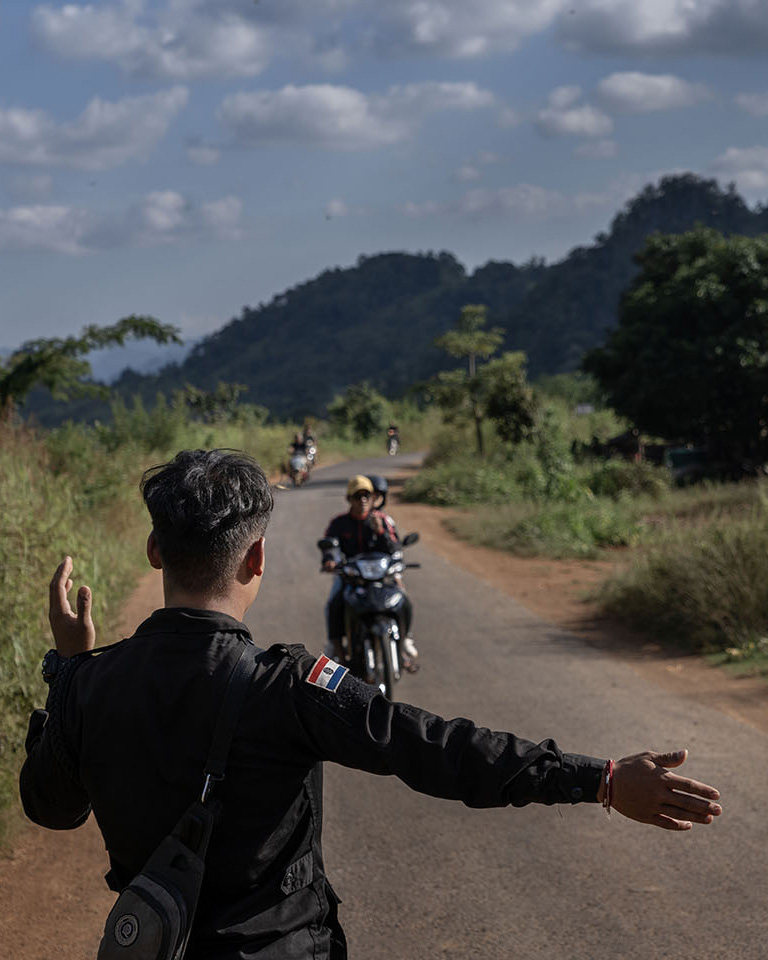
“If you don’t do that, you run the risk of losing the support of the population, which in the case of the Karenni movement is really critical,” says Jason Tower, a Bangkok-based analyst at the United States Institute of Peace. Karenni is a catch-all for the various ethnic groups in Kayah.
“The revolution isn’t going to end tomorrow.”
The rebel effort to rebuild the governmental institutions, they say, can serve as a model for federal democracy and a showcase for how best to avoid the mistakes of the past, which included a Myanmar Police Force that was often an instrument of military repression.
In other words, quite a lot is riding on the success of Bel Kyaw and his bright-eyed recruits. “Now it’s revolutionary time,” he said through an interpreter. “Young people are asking, what can I do for the state?”
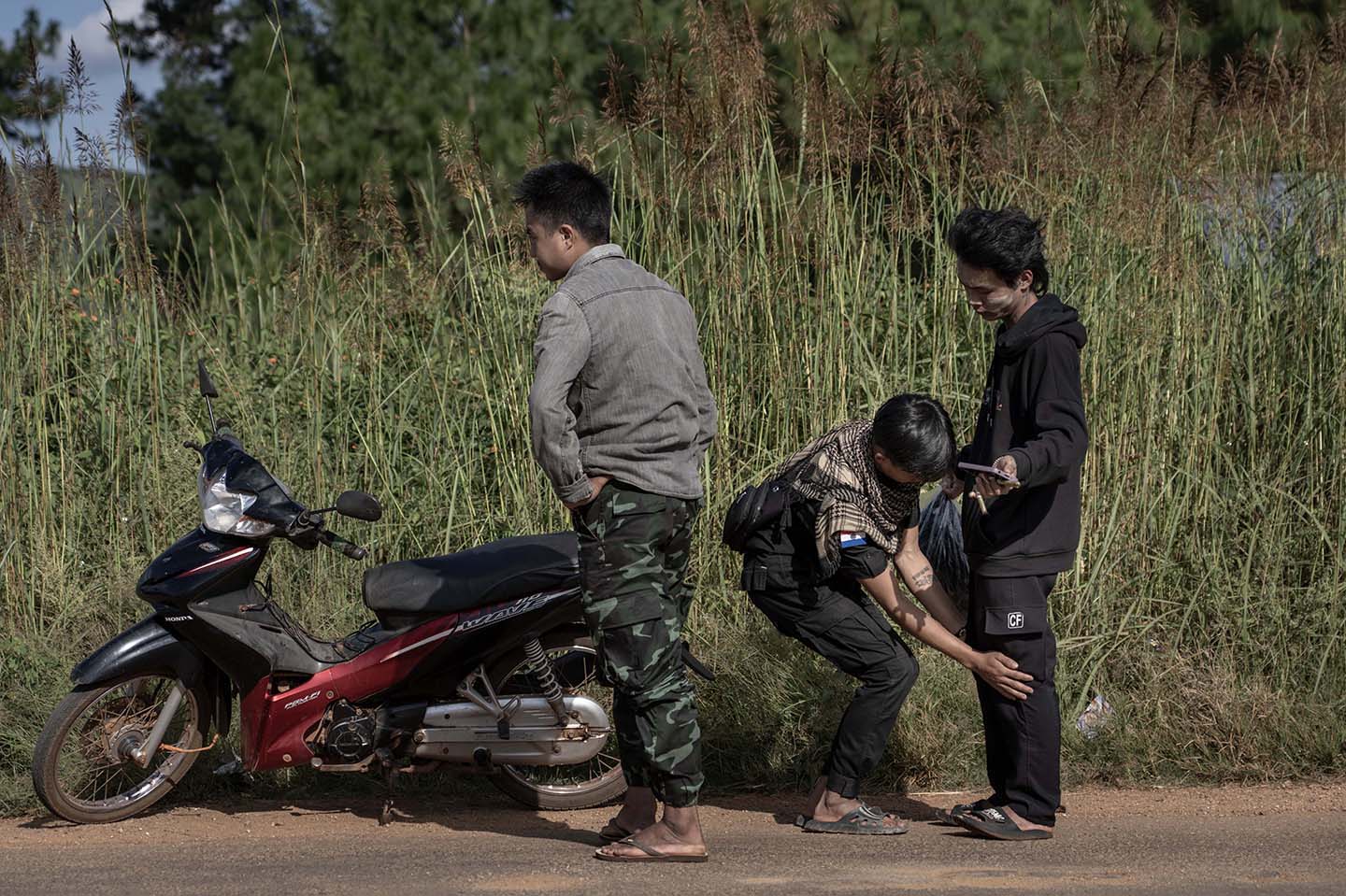
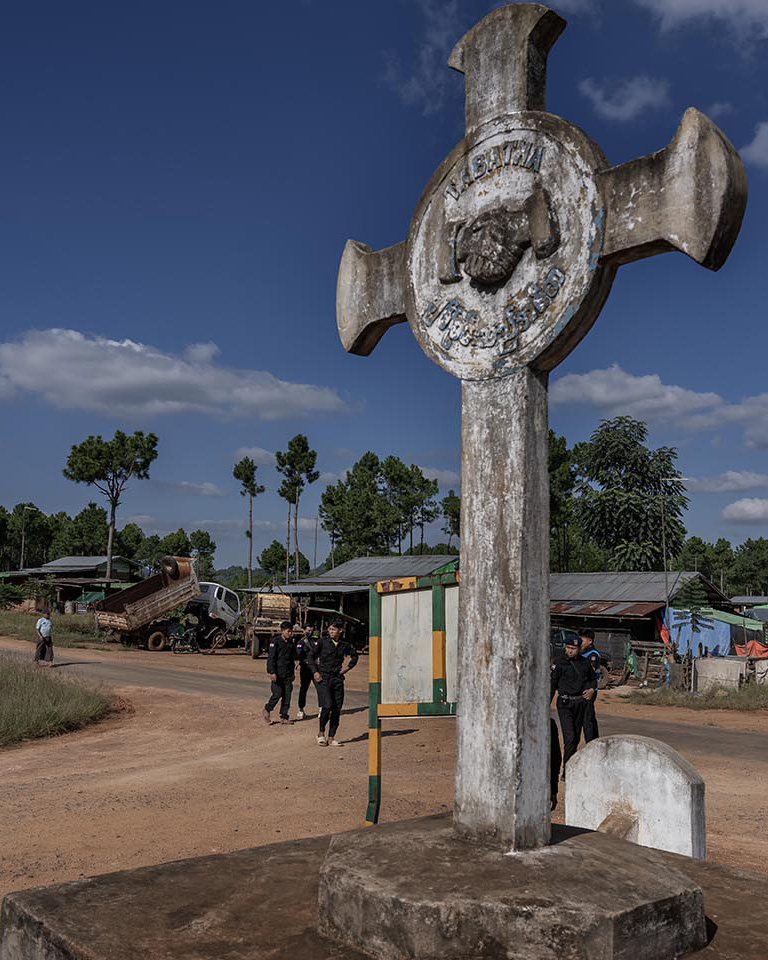
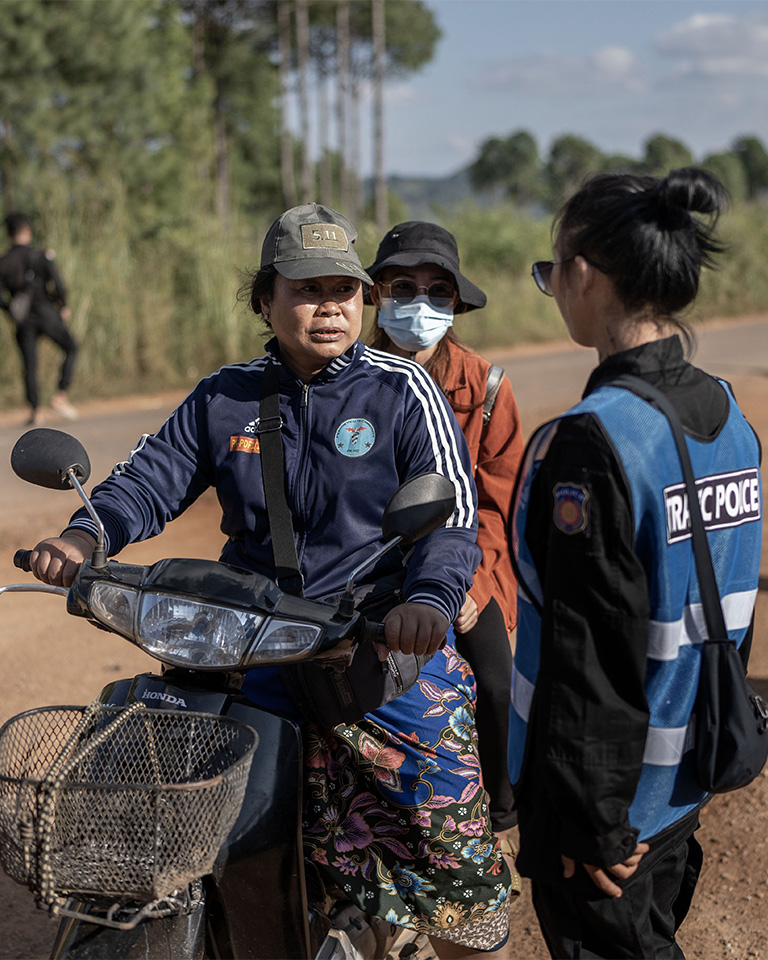
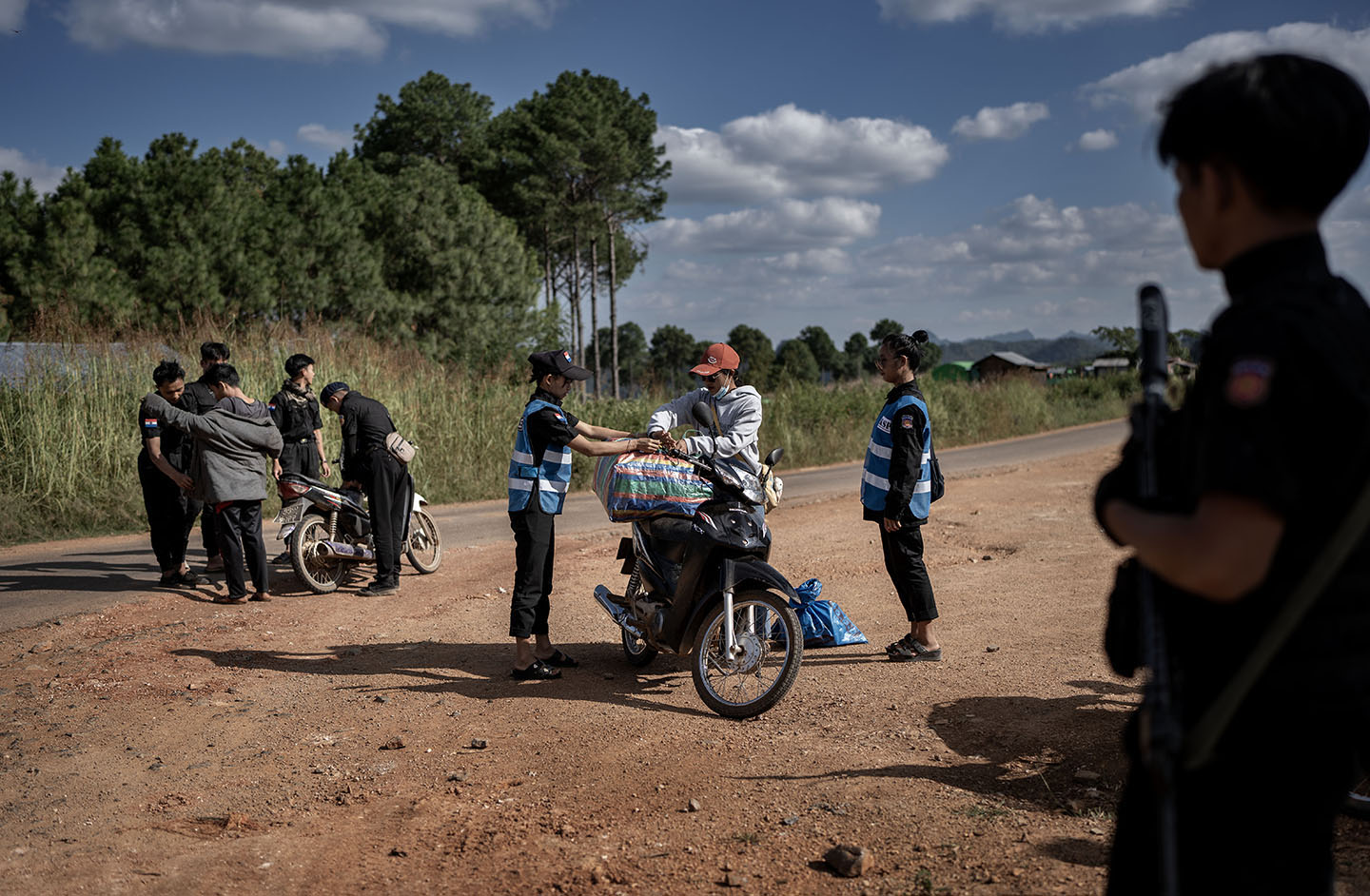
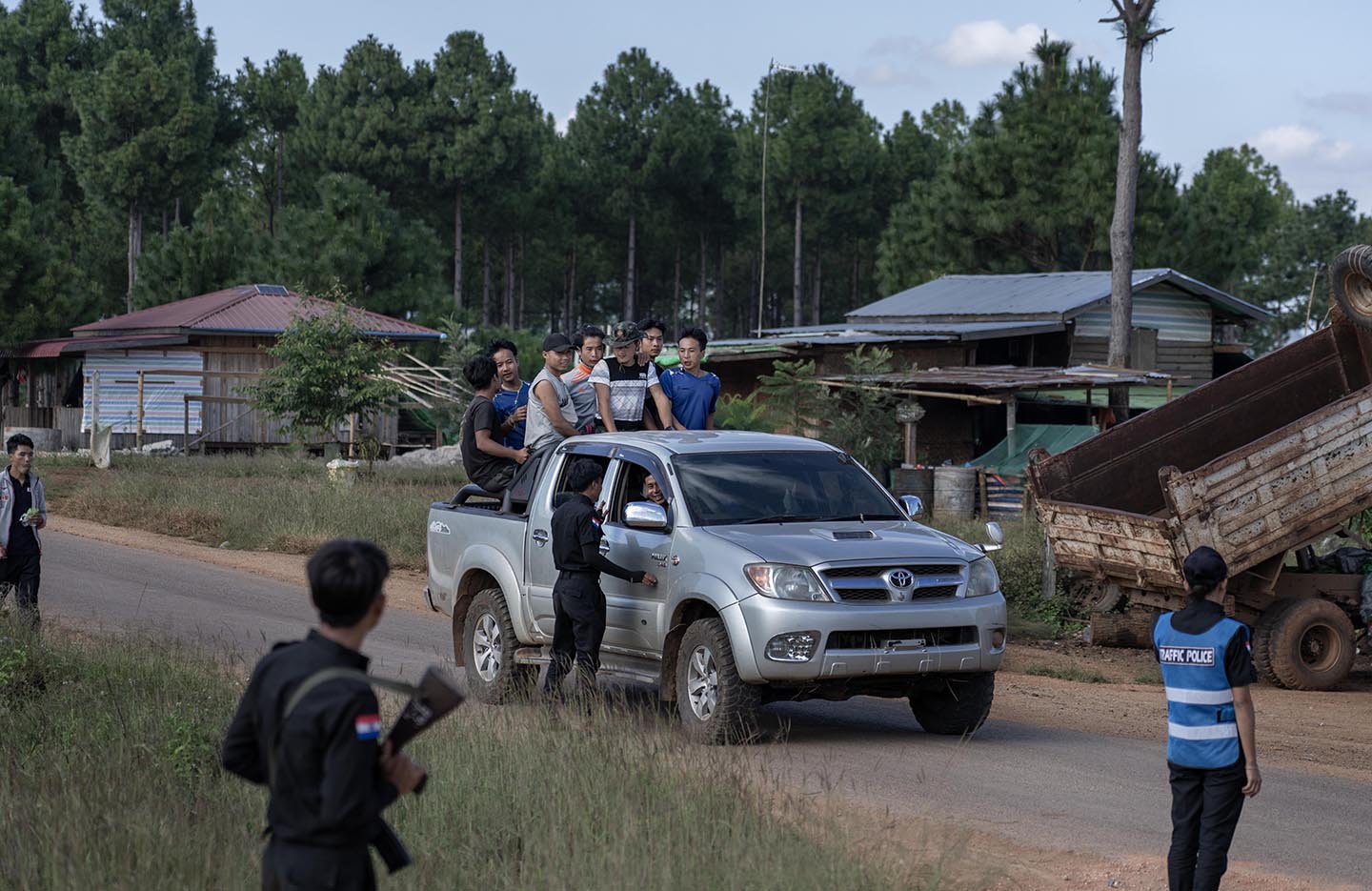
Police as oppressors
The challenges facing the rebels in general and the KSP in particular, however, are considerable. The biggest is a lack of resources. Insurgent leaders have created a nominal state government called the Interim Executive Council that raises revenue through fundraising, taxes and business levies.
But 70% of what it collects goes to warfighting, with the remainder split among the KSP and health, education, humanitarian and other agencies in Kayah established by the council. That means that the KSP must try to deal with rising drug use and violence – consequences of the traumas of four years of war – on a shoestring budget.
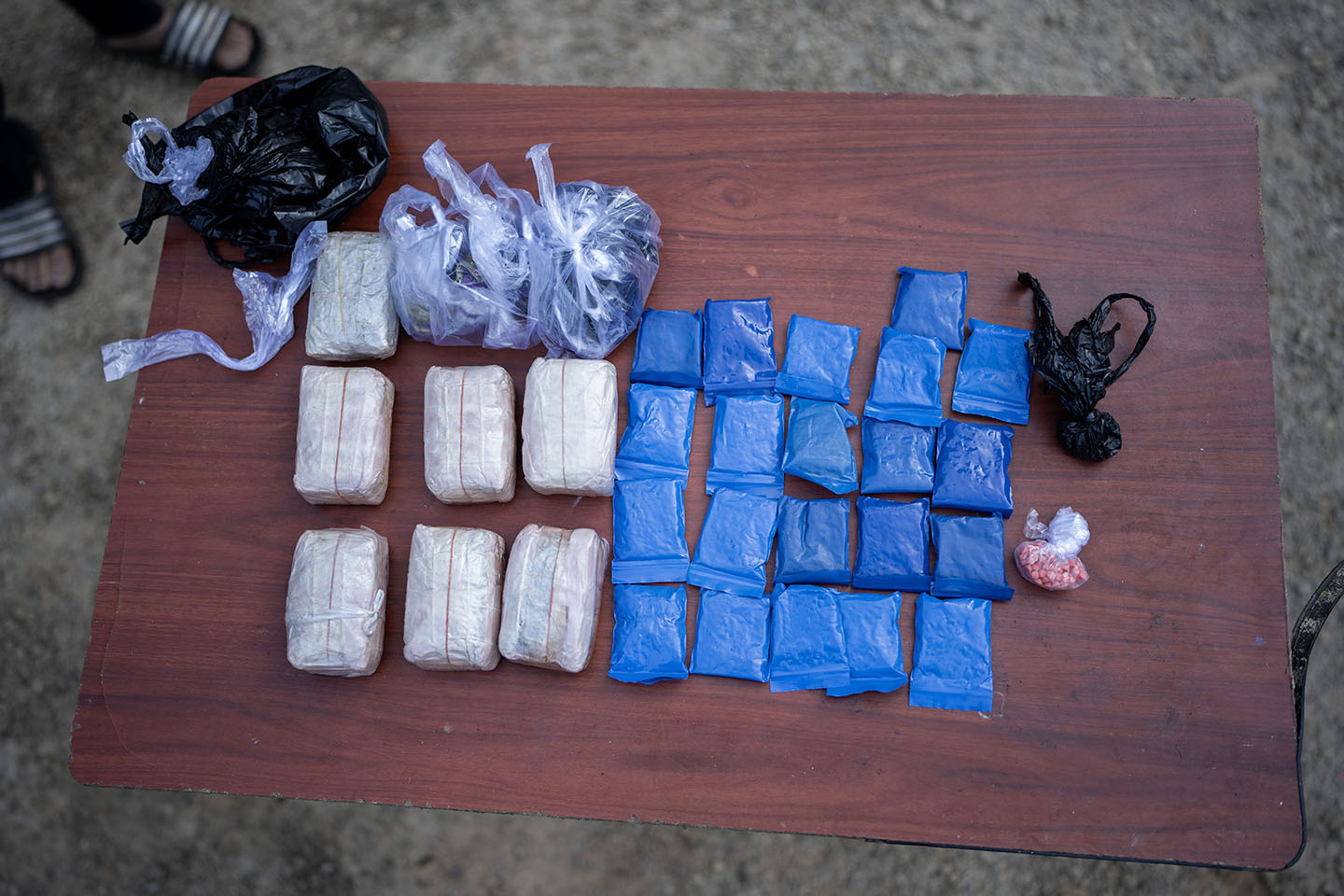
Bo Bo, the KSP’s chief spokesman, said the monthly allotments are only about 10% of what his force needs. There were 558 male officers and 180 female officers on the force as of August. Bo Bo estimates a few hundred more officers are still needed.
The van that ferried the officers to the checkpoint is a 1996 Toyota Granvia that would have a hard time chasing down a scooter. There are more cops than guns and so few uniforms, most days officers stay in civilian clothes.
They also aren’t regularly paid. Most live at the stations and give thanks to their constituents at every meal because that’s usually where their food comes from.
“Our effectiveness is a little lower because we don’t have much manpower; we don’t have much money,” Bo Bo, who leads a station in Mese in southern Kayah state, told RFA.
At the heart of the force are officers like Bo Bo and Bel Kyaw, both of whom were members of the Myanmar Police Force but resigned after the coup to join a countrywide worker strike known as the Civil Disobedience Movement, or CDM, to pressure the junta to back down. More than 100 former MSP officers are now with the KSP.
In earlier decades, the police force had been accused of harsh tactics, but, according to Tower, it had begun to reform after a previous military dictatorship agreed to share power in 2011.
In the post-coup crackdown, bad habits resurfaced, as Myanmar Police Force officers busted up rallies and arrested protesters. But the coup also highlighted the fact that a number of officers, like Bo Bo and Bel Kyaw, were more reform-minded.
Shy and soft-spoken, Bo Bo said he had dreamed of being a scientist growing up but had gone to the police academy because it was free and offered steady employment after graduation. He was first assigned to a station in his home township but was soon transferred farther away because the military didn’t want its officers to have ties to local communities, he said.
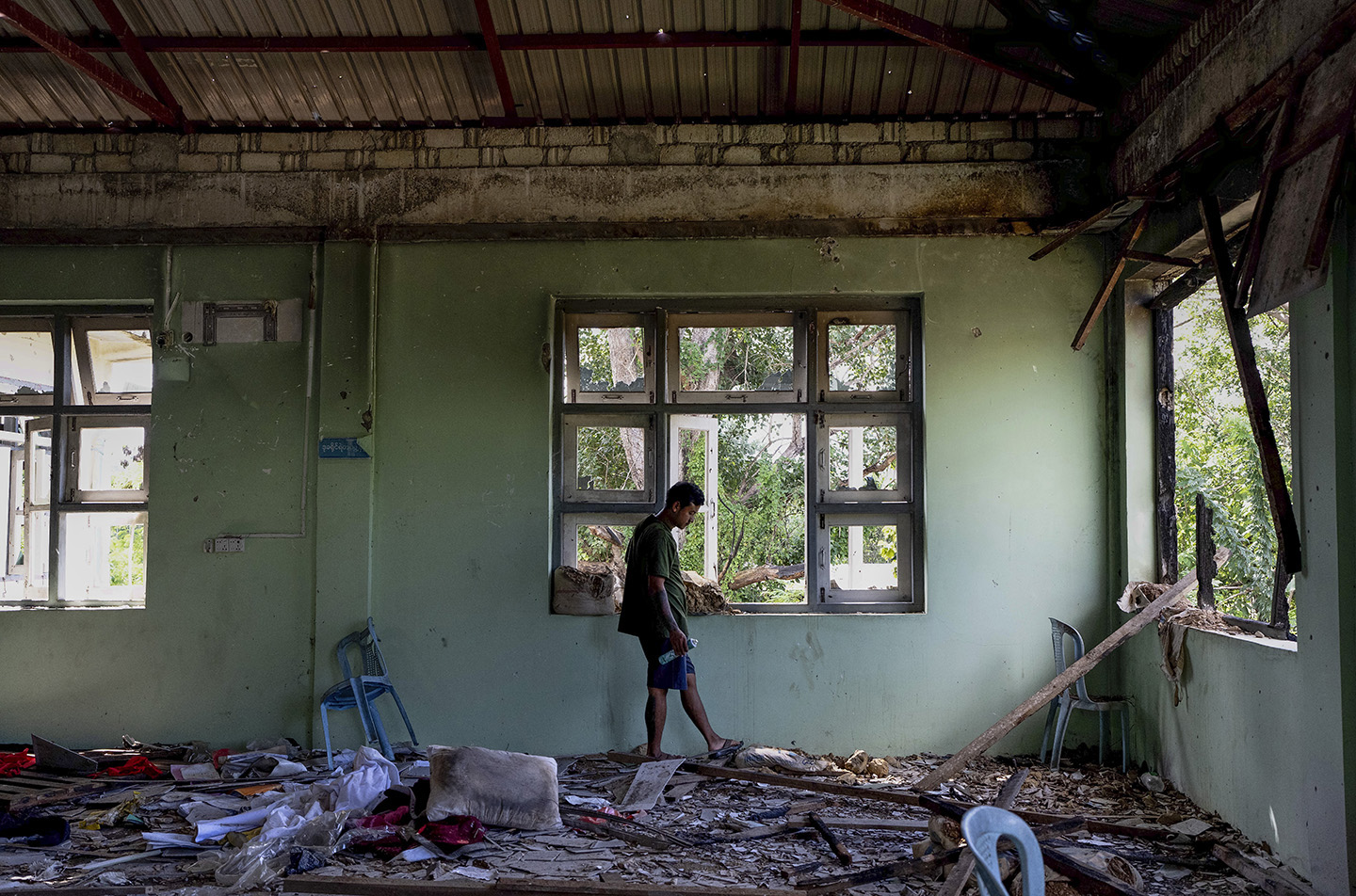
He said he quickly became disillusioned by the corruption he witnessed during those years. A friend once reported his bike was stolen but decided not to pursue the case when he learned that the required bribe was more than his bike was worth.
Officers could be roused to work on serious offenses like murder or rape, but the outcome was often preordained, Bo Bo said.
“True and false doesn’t count,” Bo Bo said. “If you had money, you win.”
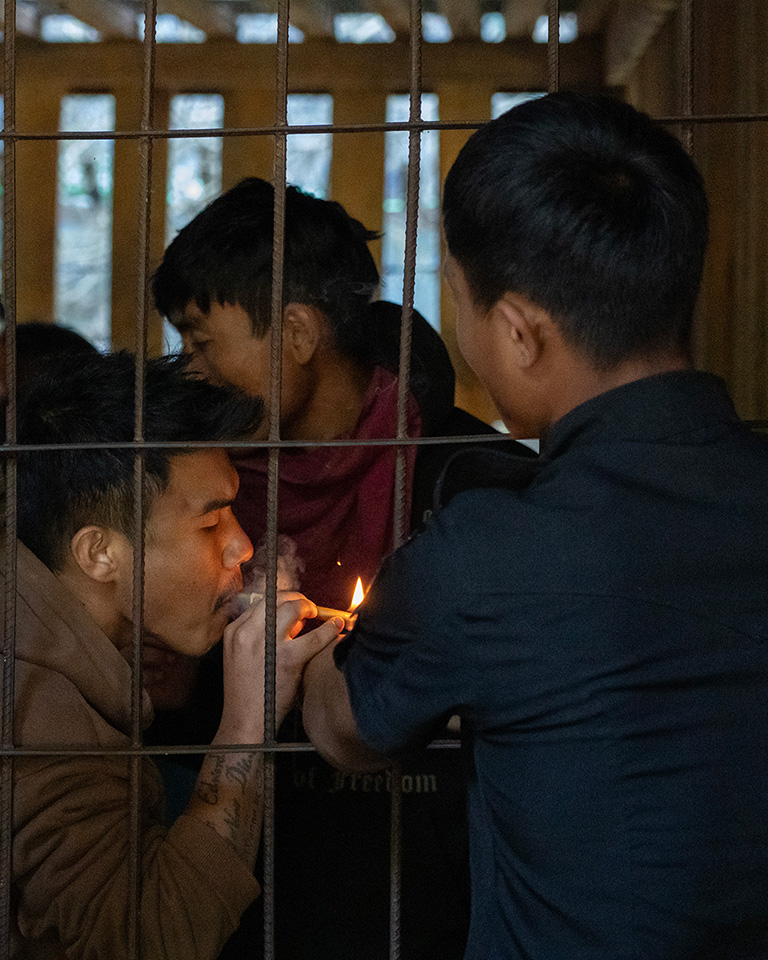
The success of the insurgents on the battlefield has given them a chance to reset the relationship between police and the communities they serve, the USIP’s Tower said.
“Whereas in the past, the police were the oppressors of the communities,” he said. “There was no concept of the idea of community security or community policing.”
Developing habits
Part of what fueled corruption in the Myanmar Police Force was the low-pay of the officers. KSP officers make even less. They often go weeks without pay. As a hedge against the type of graft that plagued the old force sprouting in the new one, recruits must complete courses that include instruction not only on police procedure but also on Karenni history and the principles of democracy and human rights that underlie the revolution here.
And in the Kayah rebel government organizational chart, the KSP sits under civilian control, unlike the Myanmar State Police, which was overseen by the military.
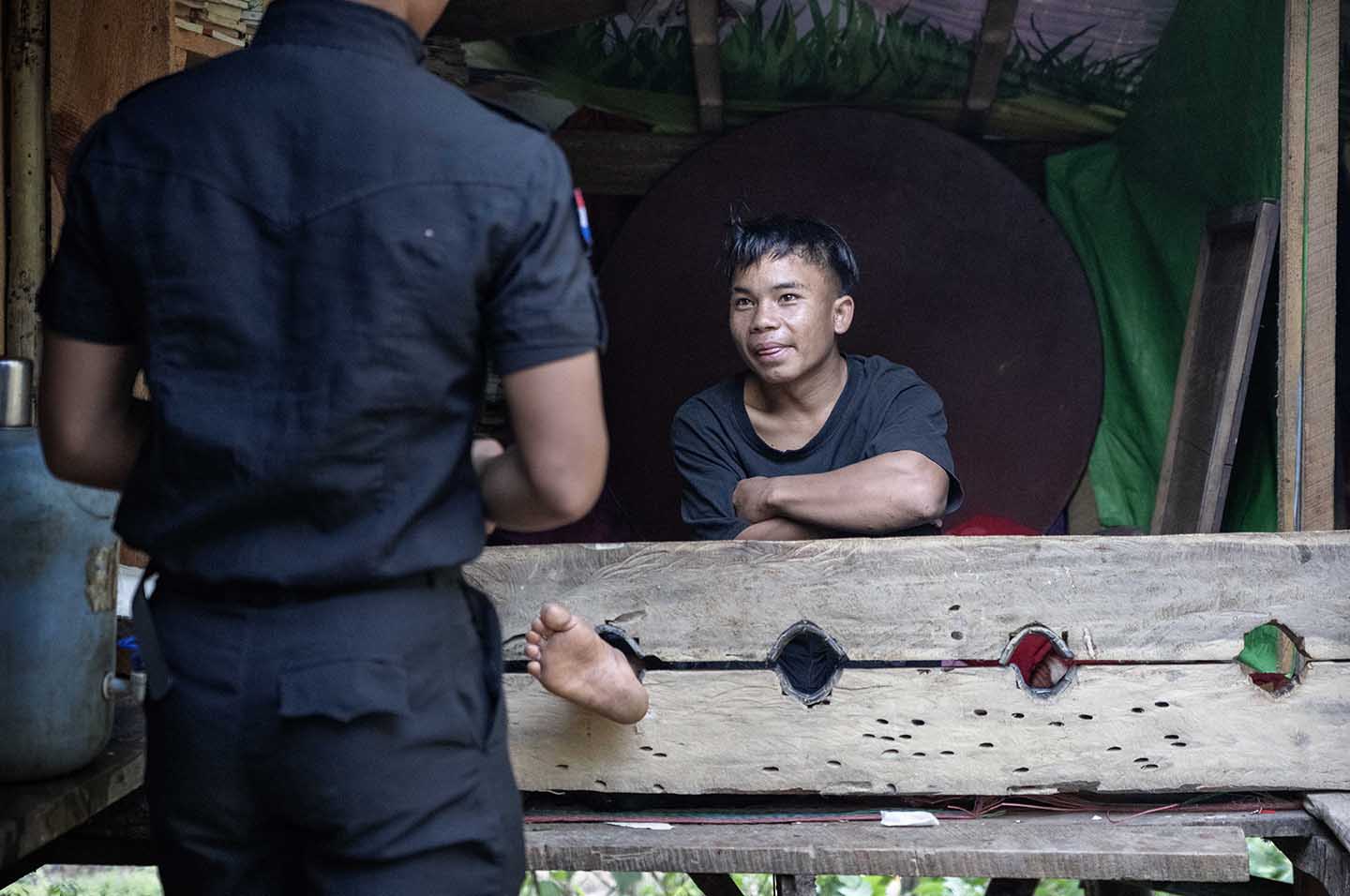
Still, there appeared to be a few hiccups in the operation when RFA visited. One detainee at Station 8 was being held with one ankle bound in an old fashioned British stockade, a holdover from colonial days. “Sunday” turned out to be a member of the police force. His crime? He said he’d be gone for one week but took two instead.
Other detainees at the two stations RFA visited were teens who had been caught by their parents using drugs. Fearing they were losing control of their children, they had asked the KSP to put them in jail as a form of rehabilitation.
Criminal suspects, meanwhile, can sit in jail for weeks without having their cases adjudicated because there are so few judges and attorneys in Kayah.
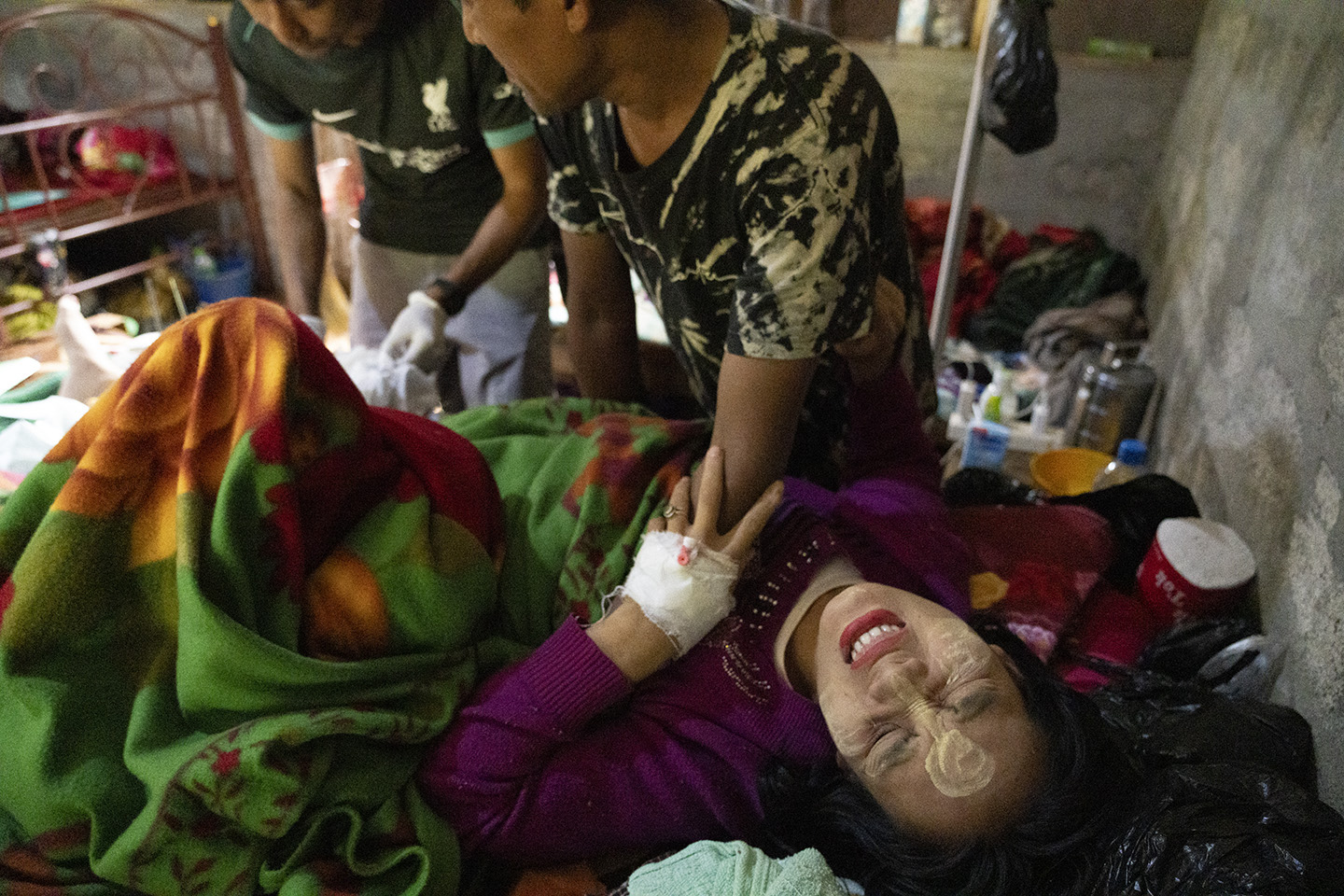
A dangerous job
The other challenge the young officers of the KSP face are the not insignificant dangers of their jobs.
Station 8 is located off the main road among terraced hills of yellow-green stalks of rice swaying in the wind. The picturesque setting, the youthful attractiveness of the officers, and the fact that they live at the station gives it a summer-camp vibe.
But the risks are real, and the main benefit of Station 8’s setting is that it’s hidden. The military junta would likely bomb the station if it knew where it was. Station 2 to the south was bombed on Sept. 5, 2024. Among the injured was Zin Zin Aung, the wife of a KSP officer. Her five-month-old fetus didn’t survive the attack.
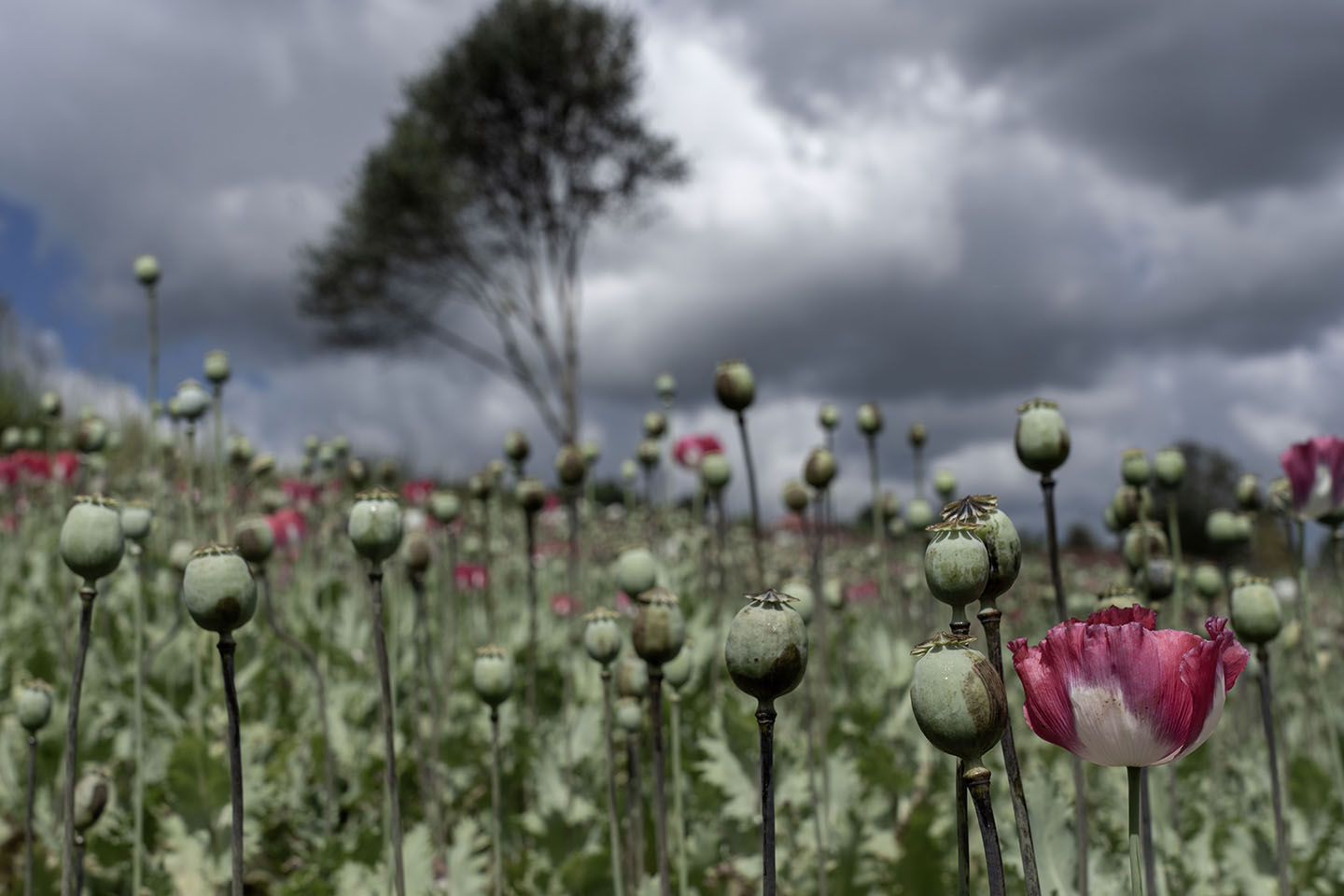
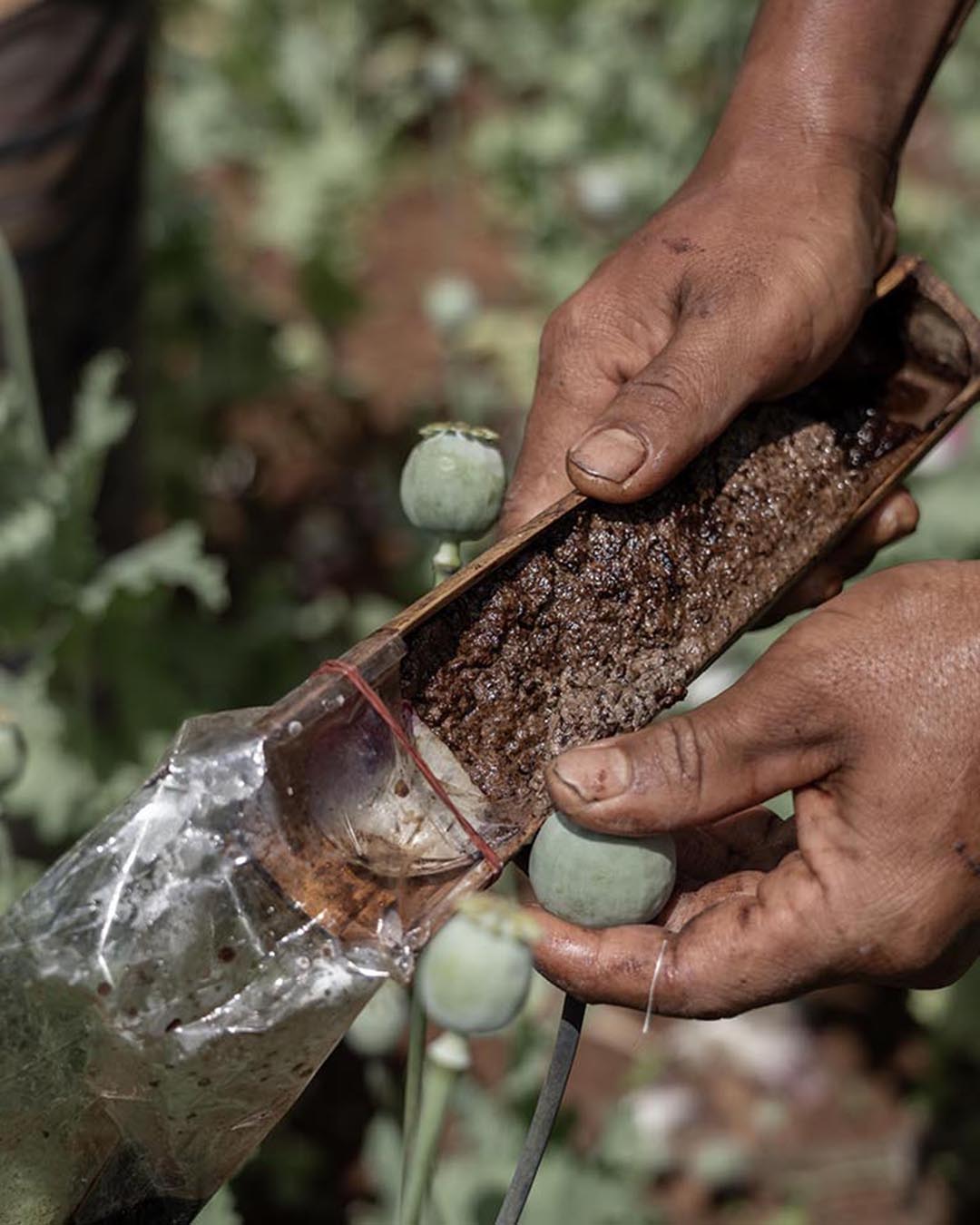
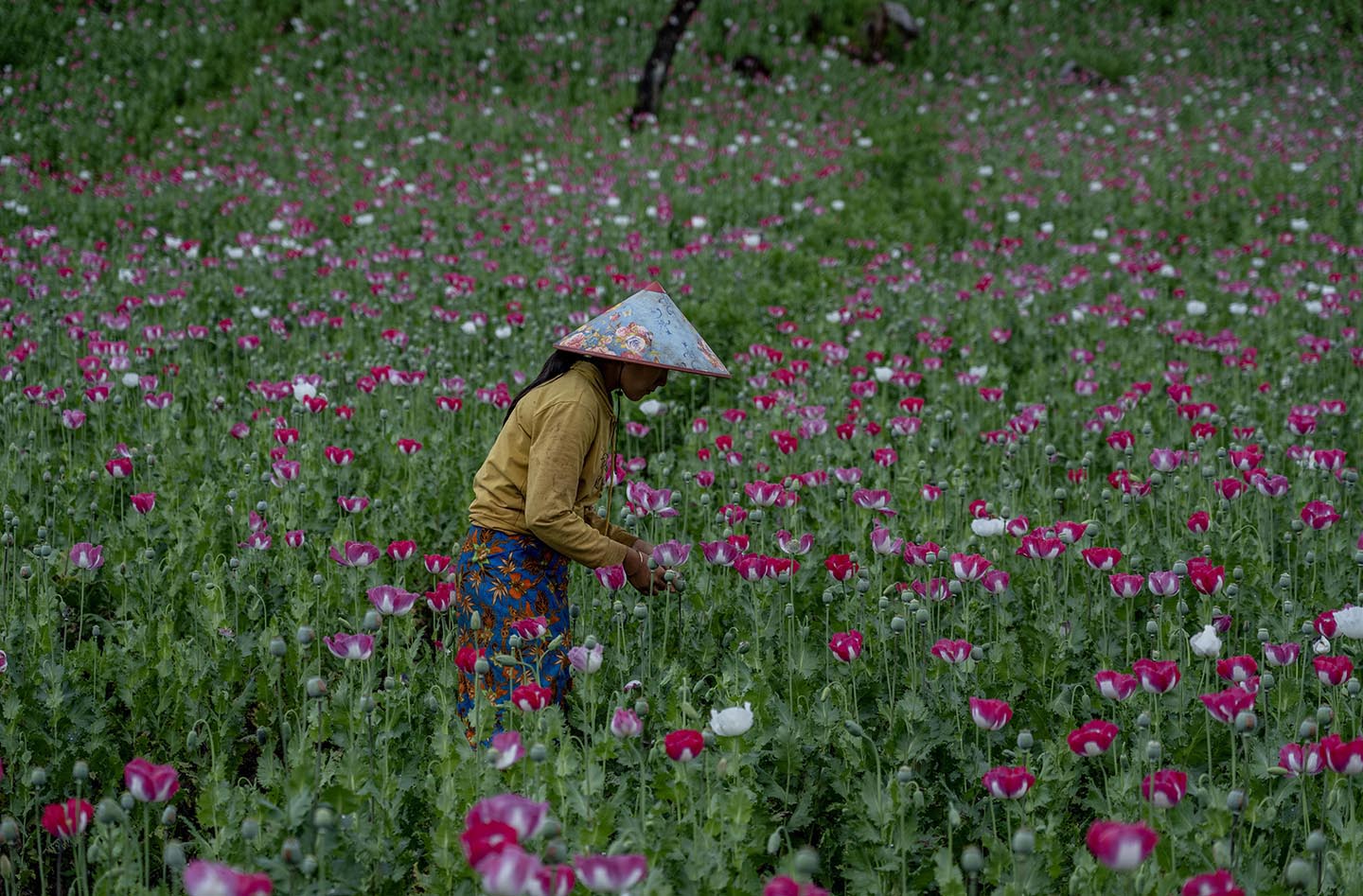
KSP officers are also outgunned by local drug dealers, some of whom have ties to ethnic armies in the area.
Poppy fields cover the landscape in southern Shan, near the border with Kayah. In the chaos created by the war, Myanmar has become the number one exporter of opium in the world, according to the United Nations Office for Drugs and Crime.
“Sometimes the drug dealers give a warning: We can kill you anytime,” Bel Kyaw said.
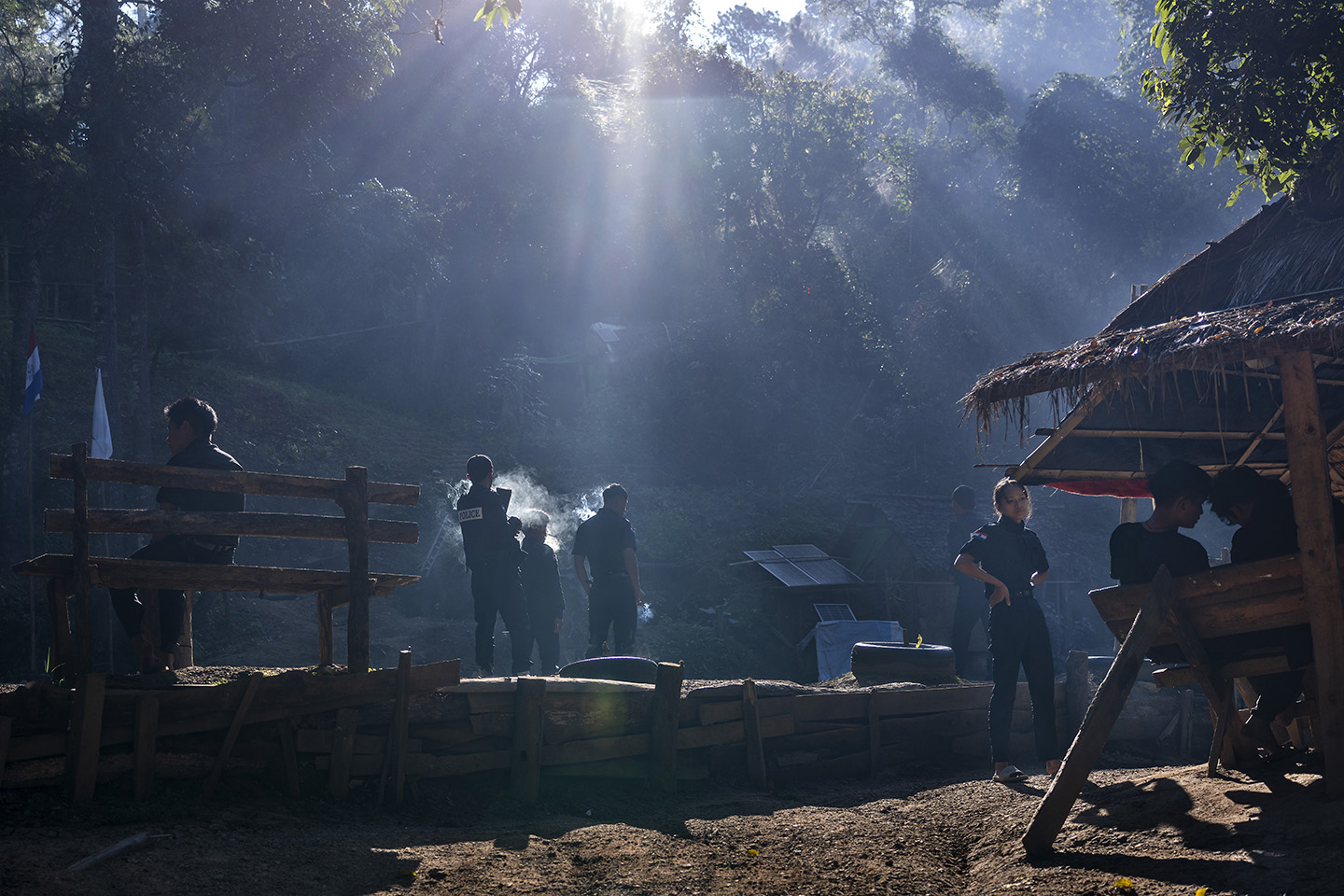
Behind horn-rimmed glasses and a serious expression, Shun Lai Yee Win, 20, acknowledged the risks she and her fellow officers face in a brief interview with RFA. She said she joined the KSP and Station 8 simply because she wanted to be part of the process of building a new, more just society.
The old police force “was corrupt, always showing their power to civilians,” she said, before the officers set off to establish the checkpoint.
Wiliam Tun, 28, who was among the civilians who were stopped, had the same opinion. “We were afraid of the military police,” he said. “They will put you in jail just to do it.”
Asked if he minded being stopped and searched by the KSP officers, he shook his head no. He knew several from the community, he said.
"These are all my friends."

